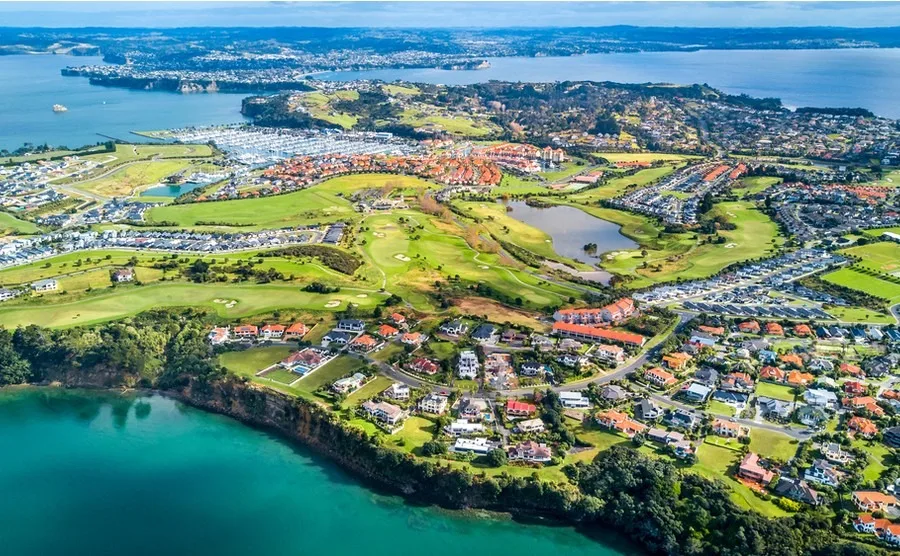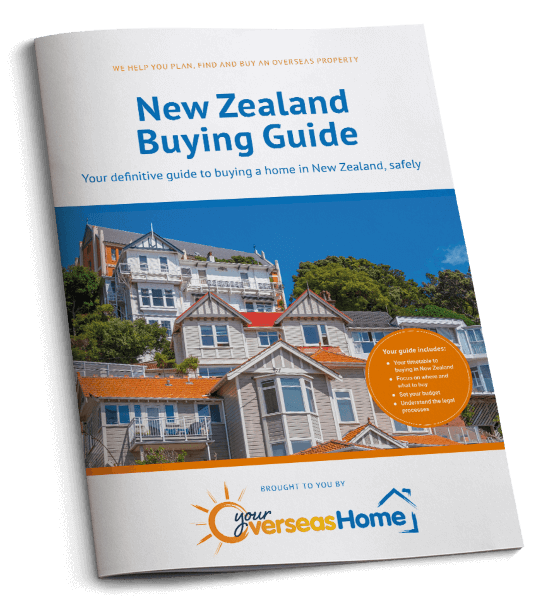When planning a move to New Zealand, how far will your money stretch when the time comes to buy a home? This article investigates what happened to prices over the course of 2019 and reveals what property experts are predicting for New Zealand’s property market in 2020.
What happened in 2019?
Did the ban on foreign buyers have the desired effect?
2019 was an interesting year for the New Zealand property market, with the effects of the restrictions on foreign buyers finally making an impact. Low bank lending rates teamed with low official cash rates and less competition for properties meant that many first-time buyers were finally able to take that first step onto the property ladder in 2019.
Get the very best possible price for your home in 2020 with the tips and tricks in our free Negotiating Guide.
Additionally, although property prices were not affected hugely in the Auckland area, according to Bindi Norwell, Chief Executive of Real Estate Institute NZ (REINZ), the number of overall sales did decrease as a result of the ban. In 2019, the total number of properties sold nationwide fell in New Zealand by 2.6% from 2018, amounting to a grand total of 70,822 sales overall.

Auckland’s beautiful residential suburbs, but what will you pay?
What happened to prices in 2019?
In 2019, New Zealand property prices reached record levels in many parts of the country. Indeed, in November 10 new regional records were set. The areas that smashed regional asking-price records included expat favourites, the Bay of Plenty, Nelson, Marlborough and Southland. In Auckland, the median property price hit $885,000. This amounts to a 2.9% increase on where it was in 2018.
According to data released by REINZ in December 2019, the median property price across New Zealand stood at $630,000, representing growth of 8.6% on where it was in November 2018. If you remove Auckland from the equation, the median asking price across the country drops considerably to $535,000. However, this still amounts to an increase of over 10% on where it stood in November 2018. The increase in property prices across the board has been blamed for the drop in overall sales throughout the year.
In the same report released by REINZ to sum up the year, it was revealed that property sales for homes sold for more than $1 million increased in 2019. They now account for 16.8% of all property sales in New Zealand. This is the highest percentage in history. Also, New Zealand properties sold that fall in the $500,000-$750,000 bracket increased to 32.8% of all properties sold.
Conversely, at the lower end of the market, the number of homes sold in the less than $500,000 bracket fell by 7.7%. This bracket now accounts for 31% of the market.
Predictions for New Zealand’s property market in 2020
Are New Zealand property prices set to rise?
Data released by Realestate.co.nz in December found that only 18,230 houses were available for purchase throughout the country. This marks a decrease of 24.5% on the amount of housing stock available in December 2018. We all know that lack of supply pushes prices ever higher. This lack of stock at the end of the year means that New Zealand finishes the decade firmly a seller’s market.
New Zealand finishes the decade firmly a seller’s market.
Predictions vary depending on which expert you speak to. In its 2020 Global Housing and Mortgage Outlook report, international credit rating agency, Fitch Ratings forecast that New Zealand will see accelerating nominal house price growth nationwide of 3% in 2020 and 3.5% in 2021. The reason they predict growth will remain at this ‘moderate’ level is due to the “opposing forces of regulatory lending restrictions and low mortgage rates.” Additionally, Fitch predicts that potential relaxation of loan-to-value (LVR) regulations, positive net migration and interest-rate cuts will contribute to the slow but steady growth in New Zealand property prices.
The country’s banks are being far more ambitious with their predictions New Zealand’s property market in 2020. ASB released their projections for property prices in New Zealand in 2020, forecasting regional growth of 7.7% in 2020, and 3.4% in 2021. In Auckland, they are expecting growth of 5.5% in 2020, and 4.3% in 2021. Westpac are predicting growth along the same lines. Mid last year, they released their prediction that New Zealand property prices would increase by 7% in 2020.
How are mortgage rates set to affect prices?
Mortgage rates in New Zealand are currently very low at an average of around 3.39% for a one-year fixed rate, and around 4% for something more long-term. You can see the latest rates from New Zealand’s foremost banks here.
If you have any questions about buying in New Zealand, give the Resource Centre’s property specialists a ring on 020 7898 0549 or email [email protected].
According to the 2020 outlook from Squirrel, one of New Zealand’s leading mortgage providers, mortgage rates look set to stick around the same mark, at least in the short to medium term. While they predict that the country’s Official Cash Rate (OCR), or bank rate as we call it in the UK, could potentially drop, the announcement in December that the New Zealand Reserve Bank (NZRB) are increasing the amount of capital banks are required to hold makes a drop in mortgage rates highly unlikely.
While its good news for now that mortgage rates are set to remain low, the knock-on effect of the new bank capital requirements could be that lending is restricted – making it more difficult for potential buyers to secure loans.
LVRs will remain the same until mid-2020

LVRs look set to continue in the near future.
Back in 2013, loan-to-value ratio restrictions were introduced in New Zealand which prevented banks from granting mortgages to clients with less than a specified minimum deposit. This imposed rate amounts to a 30 percent deposit for investors, and a 20 percent deposit for home buyers. Despite criticism of the rates and calls to abolish them, particularly for first time buyers, at present changes look unlikely. Expect these LVRs to remain roughly the same throughout 2020.
Immigration will continue to put pressure on housing
In November, Statistics NZ released a report showing that migration to the country has remained high in 2019. Over the past year, New Zealand’s population increased by 11 more people for every 1,000 people already living in the country. This amounts to an annual net migration of 56,000. While this is a considerably dip from 2017 when the annual migration rate was 72,400 – an additional 50k+ people moving to the country looking for homes certainly doesn’t lessen the demand on the property market, both in terms of purchasing property and renting. 2020 is set to be the first year that New Zealand’s population exceeds the five million mark.
2020 is set to be the first year that New Zealand’s population exceeds the five million mark.
Interestingly, over the last year the owners of Wall Real Estate in Auckland, have seen an influx of New Zealand expats returning home, particularly from the UK and Hong Kong, sparking them to coin the term the ‘expat factor’. They state that the number of New Zealanders wanting to return has basically replaced the demand on Auckland’s market that once came from overseas investors, pre-ban. While there are a number of properties set to hit the market in 2020, including a significant number of new-build apartments in the Auckland area, the fact remains that demand for New Zealand property is still far greater than supply.
The cost of renting will continue to rise
According to Numbeo, the average cost of renting a one-bed apartment in the centre of Auckland is currently $1,887 per month. The national average is $1,526 per month. For something larger (three bedrooms), you’re looking at $3,351 per month in central Auckland, or $2,462 in a suburb.
While there was a considerable slowdown in rental rates during the second half of 2019, rental prices increased in most parts of the country, particularly in those where rental supply doesn’t meet demand, such as Nelson, Southland and Manawatu-Whanganui.
Ready to start viewing properties? Read your New Zealand Viewing Trip Guide to find out how to get the most of your time.
Aaron Clancy, a spokesman for Trade Me Property – one of New Zealand’s leading property websites – explained what we can expect moving into 2020, “As house prices continue to climb around the country, tenants are staying in rentals longer to gather a deposit, and that’s putting pressure on the market. In areas like Wellington city and Auckland city we reckon we will see record-breaking median weekly rents in the coming months as we head towards what we call March madness – when students return to the area for the university year and look for a new place to rent.”
Additionally, given the fact that interest rates are low in New Zealand, property remains an attractive option for investors on the hunt for good returns. While landlords have recently been hit with additional costs via amendments to the Residential Tenancies Act and to Healthy Homes standards, because rental demand currently significantly outstrips supply, landlords have simply been passing these costs on to their tenants, pushing the cost of renting even higher.







